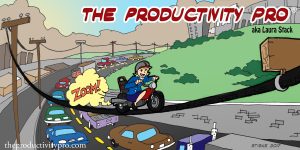
“I've had to be very upfront about the fact that good telecommuting jobs require hard work, like any job.” —Hannah Wright, founder of HowToFindARemoteJob.com. I’ve heard some traditional office workers describe telecommuters as lazy, unprofessional, and unproductive: consider former Yahoo CEO Marissa Mayer's controversial decision to ban telecommuting in February 2013. Millennials, who are better aware of the reality of pervasive Internet, high-tech options, and work-life balance, seem less bothered by telecommuting. Many actively encourage it. Numerous surveys have shown that, in general, workers who telecommute at least a few days a week are more productive. A famous study conducted in 2013 by Nicholas Bloom and one of the owners of Ctrip, a Chinese travel company, demonstrated that … [Read more...]











